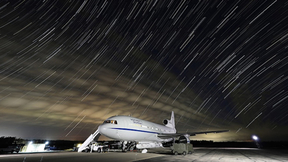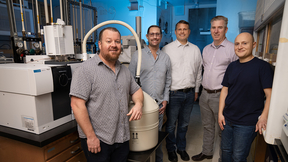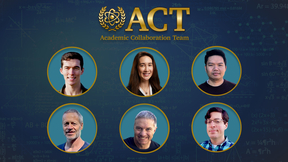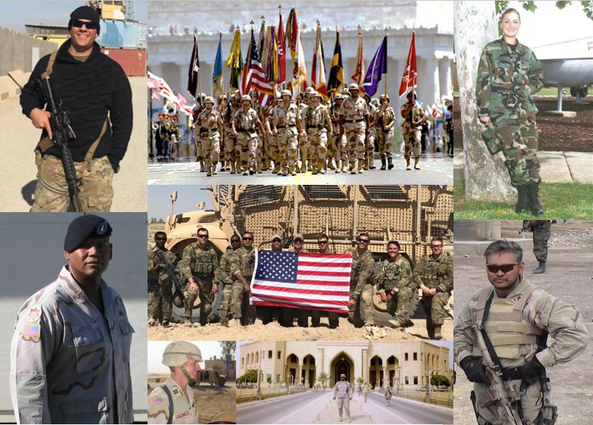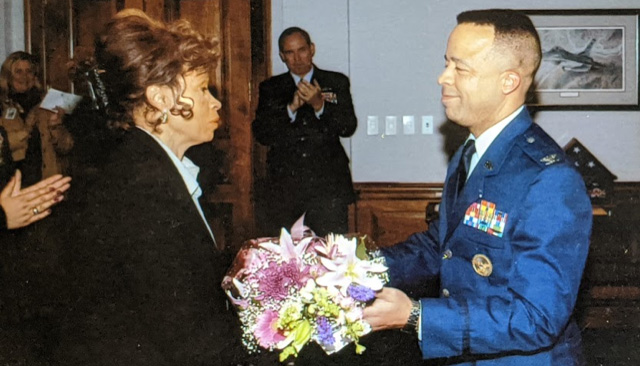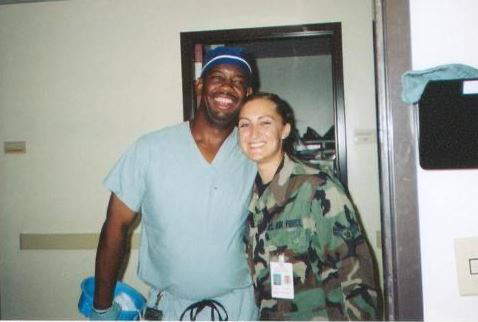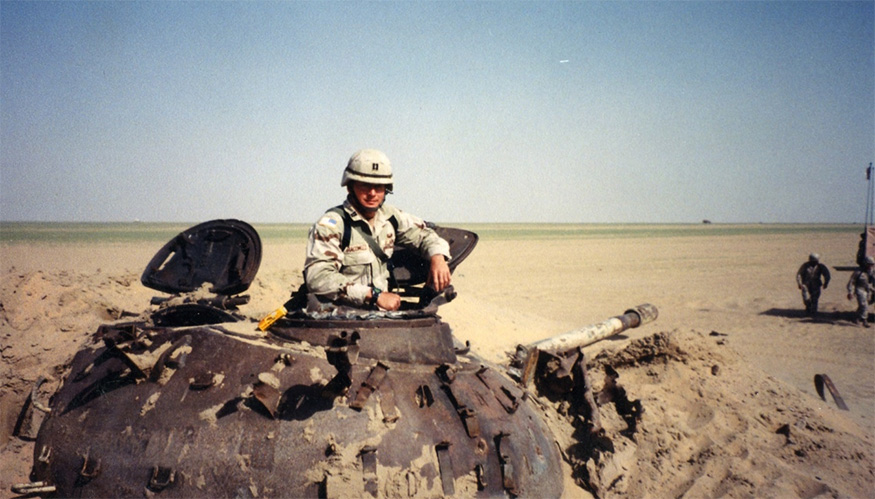Lab veterans share perspectives of 9/11
Editor's note: The following is part of a series of articles looking back at the Lab's response immediately following the Sept. 11 attacks and our contributions since that day 20 years ago.
Lawrence Livermore National Laboratory (LLNL) has always been a place for veterans looking for a rewarding career, during or after their military service has ended. Many don’t realize that once the dust settled after 9/11, dozens of Laboratory employees were called to duty. Many have answered the call of military service, going to Afghanistan, Iraq and other areas in the war against terrorism.
There are currently 486 employees on-site that have served or are serving in the military in some capacity. There are those who served a full career in the armed forces, young people who moved on from the military and others who remain reservists. The stories and experiences of their military duty and memories of 9/11 are as many and as varied as they are.
Bill Bruner, senior adviser for the Space Science and Security Program, was a lieutenant colonel and office director for Iran/Iraq policy in the Office of the Secretary of Defense at the Pentagon on 9/11. “I watched the World Trade Center towers get hit that morning on TV but had to leave for a meeting at the White House, so I picked up my classified and went outside to catch a shuttle,” Bruner said. “En route to the White House in the shuttle, we looked back at the building we just left and saw a giant pillar of black smoke.”
Bruner can still remember the thoughts going through his head in that moment. “My first thought was to thank the Lord for sending this bus and getting me off the steps of the Pentagon in time, while praying that my folks back at the office weren’t hit. My second thought was that ‘I’d better call my family and let them know I’m okay,’ and my third thought was that we need to find out who did this and annihilate them.”
Bill Bruner retiring from the U.S. Air Force as a colonel in 2003, giving a bouquet of thanks to his mother at the Pentagon, Washington, D.C. (presiding officer, Lt. Gen. Dave Deptula in the background).During course of the subsequent war, Bruner pinned on colonel. He represented the Secretary of Defense in Interagency meetings and accompanied Secretary Donald Rumsfeld, Deputy Secretary Paul Wolfowitz and Under Secretary Douglas Feith to the White House for wartime meetings of the National Security Council’s Principals and Deputies Committees. He also supported Rumsfeld during travel to Iraq. “The Air Force wanted to send me to South Korea in the middle of a hot war, so I retired from the military and stayed at my post in the Pentagon as a civilian,” he said.
Veteran/Military Outreach Strategic Program Manager Shaun Stephenson had just left active duty in March 2001 and was in the Inactive Ready Reserve working for a new employer in Modesto, California.
“My experience on 9/11 was one of initial anger and shock that we were attacked on our home soil,” he said. “I received a phone call from my local Marine Corps Reserve HQ and was put on standby. For the first time, not in an active status, I felt helpless in not being able to respond in a more proactive posture. Personally, I found myself no longer in the active Marine Corps and yearning for a sense of camaraderie from my new employer related to service and patriotism for our nation. Due to my military occupational specialty, I was not called to deploy and fight the war on terror. This was very difficult after working in the military ranks for the previous 12 years.”
Michael Guiso, a security analyst in Global Security, served the U.S. Army for 32 years. On 9/11, he was attending a U.S. Army training school. “When we came back in from a training exercise in the field, we found out the attack had occurred. I felt utter disbelief and frustration that we did not anticipate the attack. My unit, the 19th Special Forces Group, was deployed to Afghanistan in early 2002,” he said. Guiso had to leave his family and his employment at the Lab to serve.
“All of my overseas experiences in the armed forces influenced my views or perspectives on the political and social impacts of U.S. policies on population in those countries,” he added. “Generally, I felt that we made a difference on the economic and social stability of those countries and were perceived by the populace in a positive manner and as a valuable ally.”
Through his time supporting various missions, Guiso gained valuable experience in intelligence and combat operations, which he was able apply to his role in LLNL’s Security Organization when he was a training instructor.
John Wong, a computer scientist and systems engineer in Computing, recalls hearing the news when he and his wife were leaving home to head into work. “Hearing the news of what was going on was surreal. It was numbing, I got to work and immediately called my chain of command to find out what was needed from me,” he said.
Wong, who served 20 years as a gunnery sergeant for the U.S. Marine Corps, battled feelings of sadness and guilt. “Being deployed with a unit that had a lot of casualties impacted me profoundly. I never went overseas, and I feel guilty about that all the time. I try to live life to its fullest and try not to let little things bother me. At the end of the day, they’re all little things,” he said.
“9/11 was a huge wake up call to the United States,” Wong said. “In my opinion, the events of 9/11 tested the country’s fortitude. It brought out the best of its citizens that wanted to serve in the U.S. Armed Forces, whether they were an American citizen or not. I felt pride when young women and men decided to sign the contract and don the uniform by my side.”
Michele Morris, executive protocol officer and leader of the Veterans in Energy, Technology and Science (VETS) employee resource group, served six years in the U.S. Air Force (USAF). She had just enlisted in the USAF the May before 9/11 and was on delayed enlistment.
“On 9/11, I worked in a vault at Sandia/California and didn’t have access to a radio or TV, so we relied on a newsletter for updates,” she said. “I don’t remember being worried about my situation, but I do remember worrying about my friends that were in the Army and Marine Corps. I knew they would feel the effects of 9/11 before I would.”
Michele Morris in 2005 during her hospital floor rotation in the Neonatal Intensive Care Unit at Travis Air Force Base, California, pictured with Tech Sgt. Stephen Palacio.Morris recalls not being prepared for what she would see and experience in the military, but was somewhat thankful for the naiveté. “Working in the Air Force hospitals after 9/11, doing medical evacs and tending to patients, took an emotional toll. I wanted nothing more than to help people, but I wasn’t prepared for the heartbreak that you experience as you stand in a patient’s room as their family comes in,” she said. “I think the hardest part was going home and watching the news. At the time, at the end of the broadcast, the news stations would list the names of the people that had been lost that day. I would watch and scan the list of names, praying that I wouldn’t recognize any of the names. Then I would cry for all the friends and family that knew someone on that list. 9/11 made me thankful for the little things in life – it made me thankful for every day that I woke up and was able to experience another day.”
David Eddy, a classified administrative specialist in Weapons and Complex Integration, was working on the Special Response Team in the Superblock at the time. “I was working swing shift, which started at 2 p.m., so I was just waking up. I got a call from my girlfriend at the time telling me to turn on the TV. I turn it on and I’m watching the first tower on fire. At this point, I’m starting to get that bad feeling, but didn’t want to jump to conclusions. As I’m on the phone talking to her, I watch the second plane hit the second tower. I knew immediately that this was intentional and thought, holy [crap] we are going to war,” he said. “I hung up the phone and called the sergeant’s office here at the Lab. No one really knew the impact on the Lab at that time, so I just said I was coming in. The decision was made to close the Lab and send everyone home. We in security worked a lot of hours over the next couple of weeks.”
Eddy had plans to leave the Army Reserve after 15 years of service. Three months prior to his exit date, he was called up initially for Iraq with the 1st Cavalry Division and ended up in Afghanistan for the spring offensive in 2004. “When I came back, I was still thinking about staying out, but was talked into finishing my last four years. I ended my service with 21 years total.”
Remembering the impact 9/11 had on him personally, Eddy said: “It makes you realize that things, good and bad, can happen in an instant, and that you need to enjoy what life provides. Thousands of people that day had no clue there would be no tomorrow.”
Chad Giacomozzi, deputy program manager for the Nuclear Threat Reduction Program in Global Security, was serving as a battalion adjutant for 1st Battalion, 68th Armored Regiment at Fort Carson, Colo., and had been recently selected to take command of Alpha Company when he got the news. “We immediately held a company formation, where my first sergeant told the company that was soon to be mine, ‘This is it, the moment we’ve been training for. Prepare yourselves, prepare your families. We are going to war.’ My tank company deployed to Kuwait in support of Operation Enduring Freedom the week before Christmas 2001, and again to Iraq in support of Operation Iraqi Freedom Phases I and II in 2003.”
While in combat, Giacomozzi did a lot of self-reflection. “I realized that I didn’t like some things about the person I was. I suppose confronting your mortality tends to do that,” he said. “I am continuing to strive to be a kinder, more caring and patient person because of that experience.”
Chad Giacomozzi inspecting a destroyed Iraqi tank from the Gulf War near the Iraq border in Spring 2002.After commanding a tank company, Giacomozzi was questioning his future in combat arms. The Army sent him to Stanford for graduate school, and then he became a physics professor at West Point. “While teaching at West Point, I learned about a niche career field in the Army, Nuclear and Counterproliferation (FA52), and decided to leave Armor Branch behind and pursue a more technical career for the remainder of my service, which later led to my second career here at LLNL.”
Bradley Rinker, a radiographer in the National Security Engineering Division, was a freshman in college, getting ready for school when his parents told him that a plane flew into the World Trade Center earlier that morning. “As soon as I came out to check the news, the second plane flew into the second tower. For the next few weeks at school and in my personal life, it was all we talked about. I can still to this day close my eyes and see the images of the second plane hitting the tower. It’s hard to put into words what it is was like seeing someone attack America on American soil. It was something I will never forget.”
Right after 9/11, Rinker went to the military recruiting office to sign up. “My parents influenced me to finish college, so if I decided to join the military, I could as an officer. The feeling of serving the country did not dissipate after college and I ended up serving in the U.S. Army from 2011 to 2020,” he said. “It’s hard for me to imagine, if 9/11 didn’t happen, would I still have left the civilian work force and joined the military? Maybe. I know I would most likely not have the amazing opportunity to work for the Lab and be in the position I am in without the skills and experience I have due to my military service.”
James Jones, senior staff security adviser/directorate security officer for Global Security, has a vivid recollection of 9/11. “I was in Phoenix, Arizona and in bed playing with my oldest son JJ, who was two years old at the time, when my [ex] wife told me to come in the living room to see that a 'small' plane had hit the World Trade Center and it was on fire,” he said. “I came in and started watching and thought this was a possible joke or Orson Welles-type ‘War of the Worlds’ TV show, so I changed the channel, and the coverage was all focused on the World Trade Center. That’s when the second plane zoomed into the frame and struck the second tower and burst into flames. I immediately shouted, ‘we are at war.’”
The events of 9/11 had a very personal effect on Jones and his family. “My younger brother and I, who both served in Desert Storm, rejoined the military. We both felt a sense of duty and ‘unfinished business’ when we both took the oath,” he said. “From a cultural perspective (being half-Navajo), we were always taught by our Chei’ (grandfather) that we were Nabáahii (warriors), Naat’áanii (leaders) and protectors of those that could not protect themselves and the land. I felt compelled to go back into service. An attack against the towers and the Pentagon was an attack against Dinetah’ (Navajo/Native Lands). I returned as a forward observer at my previous rank of staff sergeant and soon found myself mobilizing in support of Operation Enduring Freedom.” He later served in Operation Iraqi Freedom and at Guantanamo Bay, Cuba, before selection for Officer Candidate School. Jones continued to serve until 2015.
Jones came to LLNL by chance. “I had a background working with explosives as an Army sapper and had become an Army artillery officer upon returning to service. I never thought I would ever find a job using combat training and experience in the civilian sector. So, it seemed to be a natural fit. I have now been at the Lab for 15 years while simultaneously serving in the military.”
LLNL provides veterans the opportunity to continue serving the nation through their contributions to the Lab’s mission with national security at the forefront. Each veteran comes to the Lab with personal experiences and stories of their service to the country.
The VETS employee resource group is a place for LLNL veterans to join together, providing support with access to numerous programs. The VETS group is active in the community, from gathering and donating backpacks of school supplies to military children, volunteering their time at local VA facilities, serving breakfast on Veterans Day and holding services to honor fallen comrades on Memorial Day and in remembrance of Sept. 11.
Contact
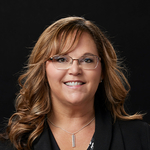 Carrie L Martin
Carrie L Martin
[email protected]
(925) 424-4715
Related Links
Veterans in Energy, Technology and ScienceTags
DefenseFeatured Articles
